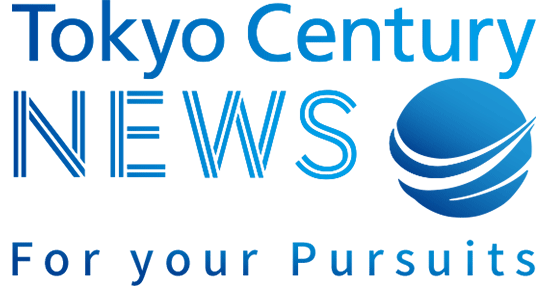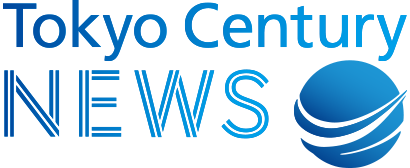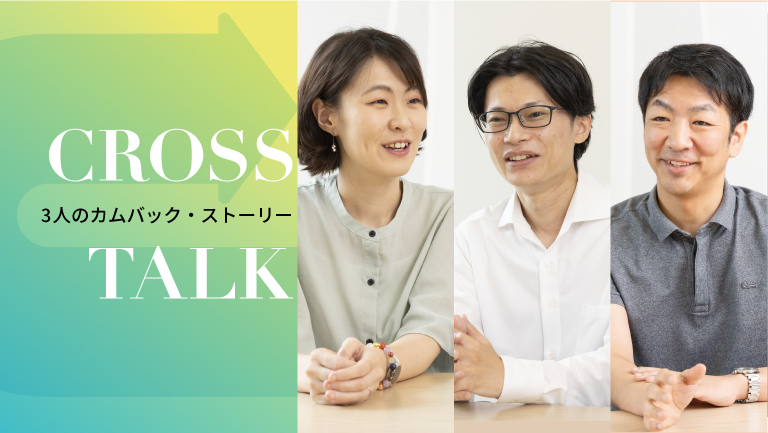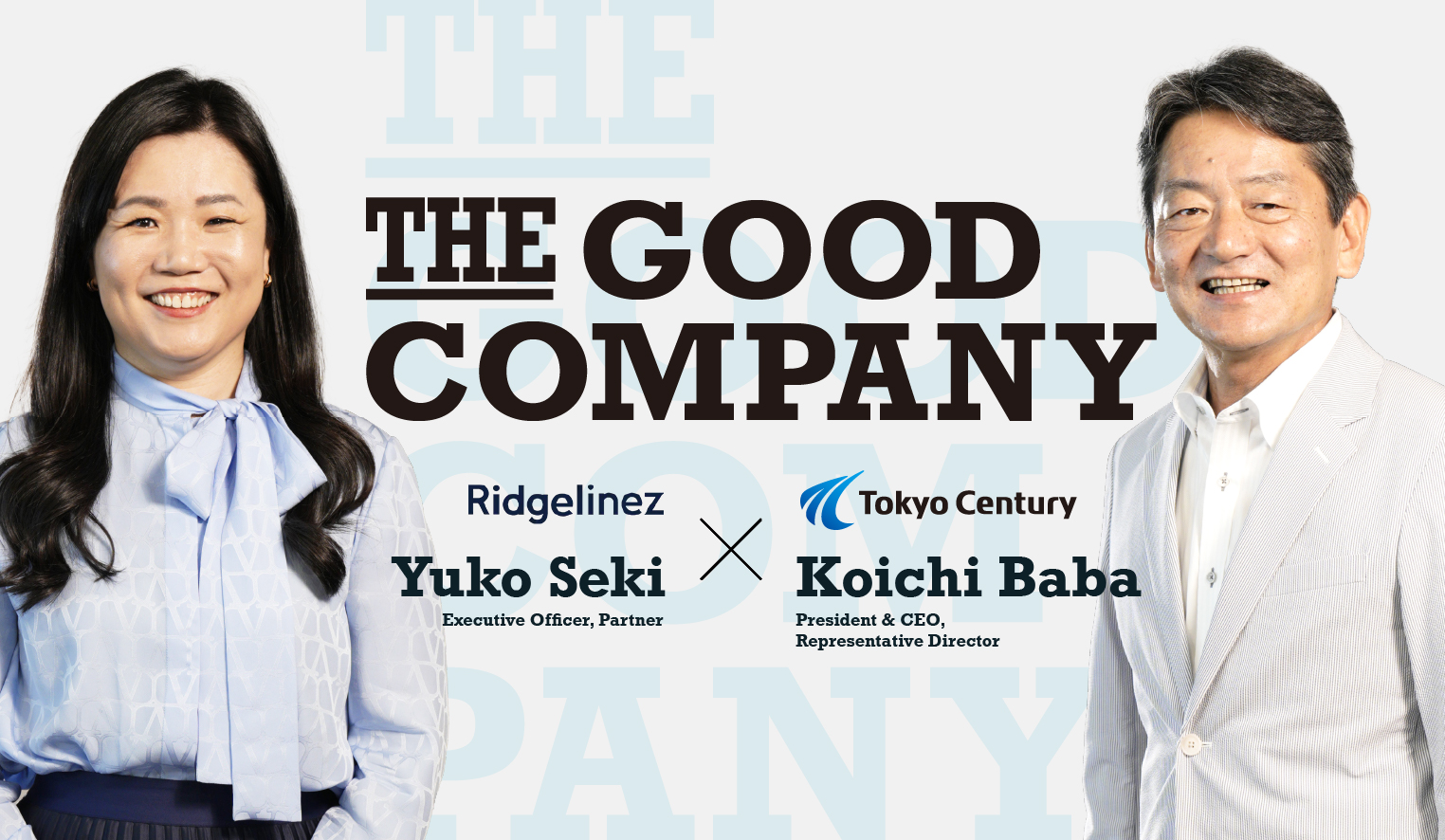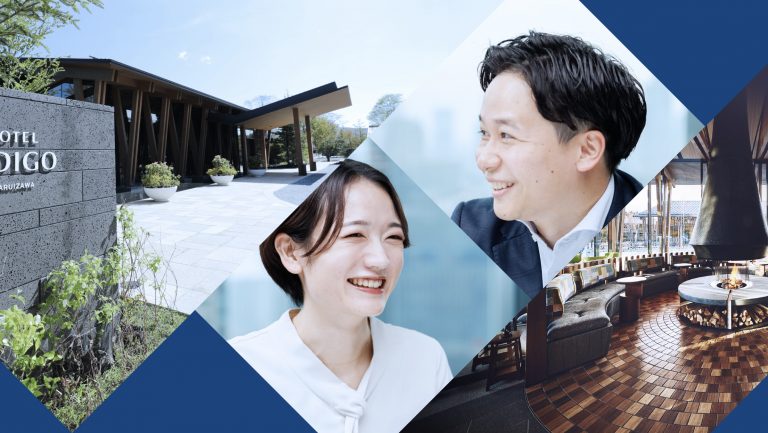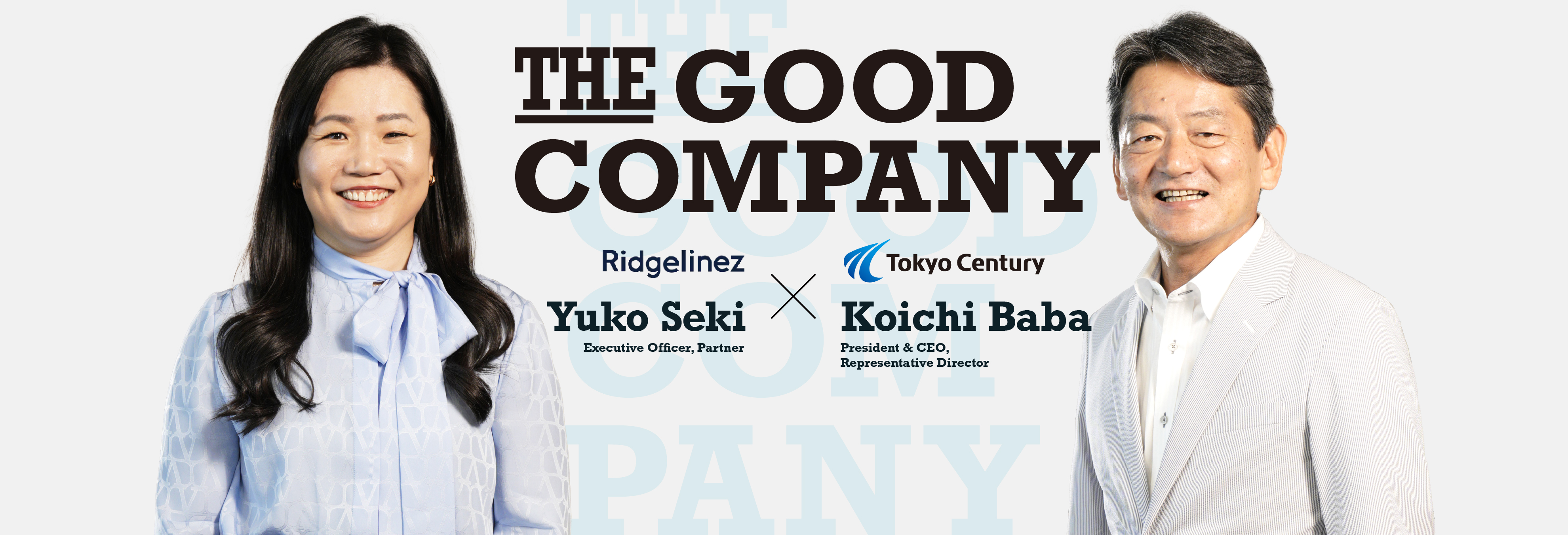
THE GOOD COMPANY
—On Becoming the Company of Choice Today, a Conversation between Ridgelinez and Tokyo Century
Sep 25, 2024
In the rapidly changing Reiwa era, companies face the challenge of being chosen by stakeholders. Employee and organizational development is essential for companies to transform themselves and bring about change, not just simply respond to it. How does the concept of well-being help a company to grow while applying the individual strengths of diverse human resources?
Here we speak with Yuko Seki, a partner and executive officer, as well as the leader of diversity and inclusion (D&I), at Ridgelinez Limited, and Koichi Baba, the president and CEO of Tokyo Century Corporation, which has positioned 2023 as the first year of well-being and is promoting unique initiatives such as the Mentor Program and TC-Mee+. Both companies are steadfastly taking on the challenge of X, meaning transformation, and we’ll explore why they are emphasizing well-being.
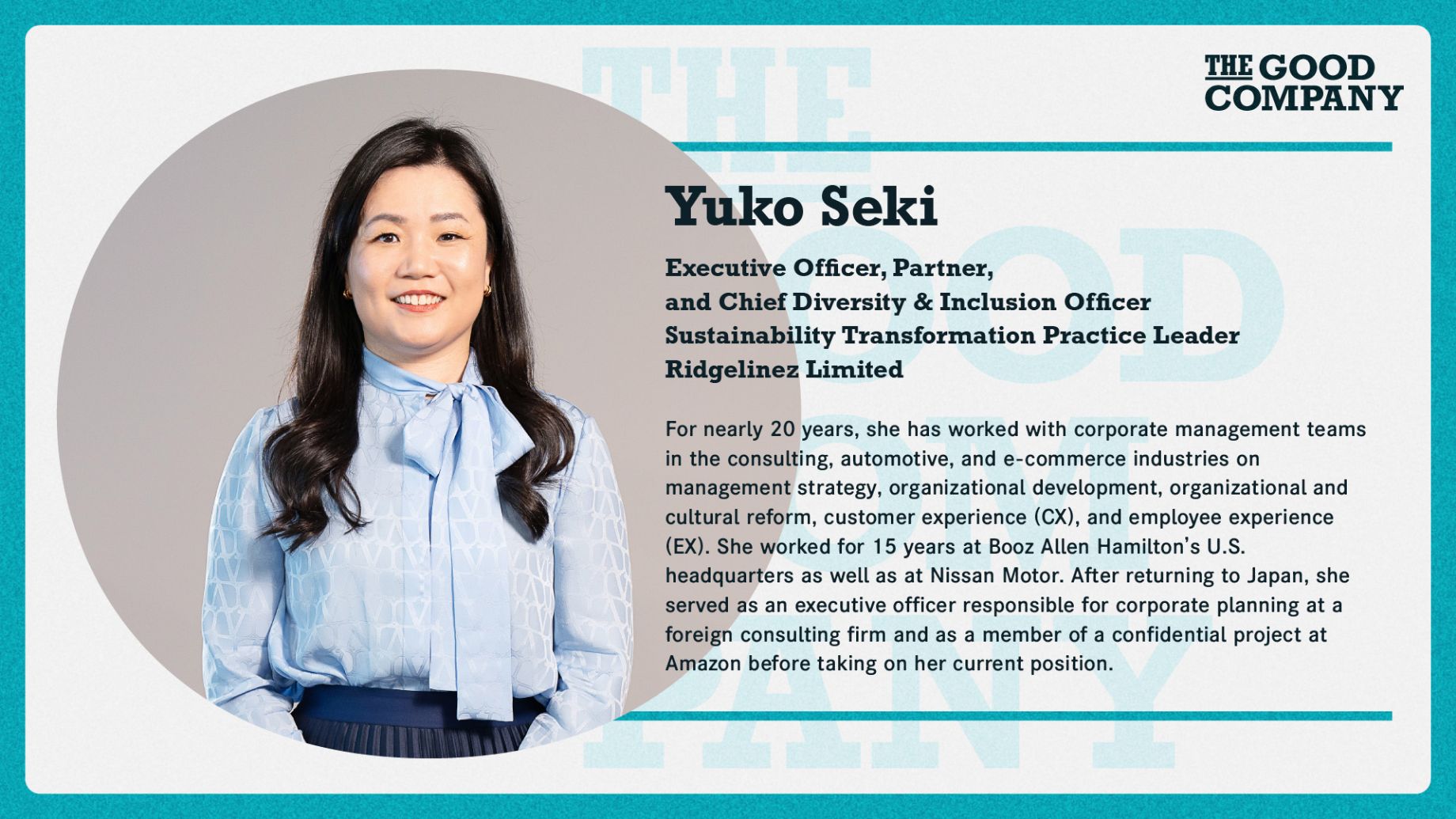
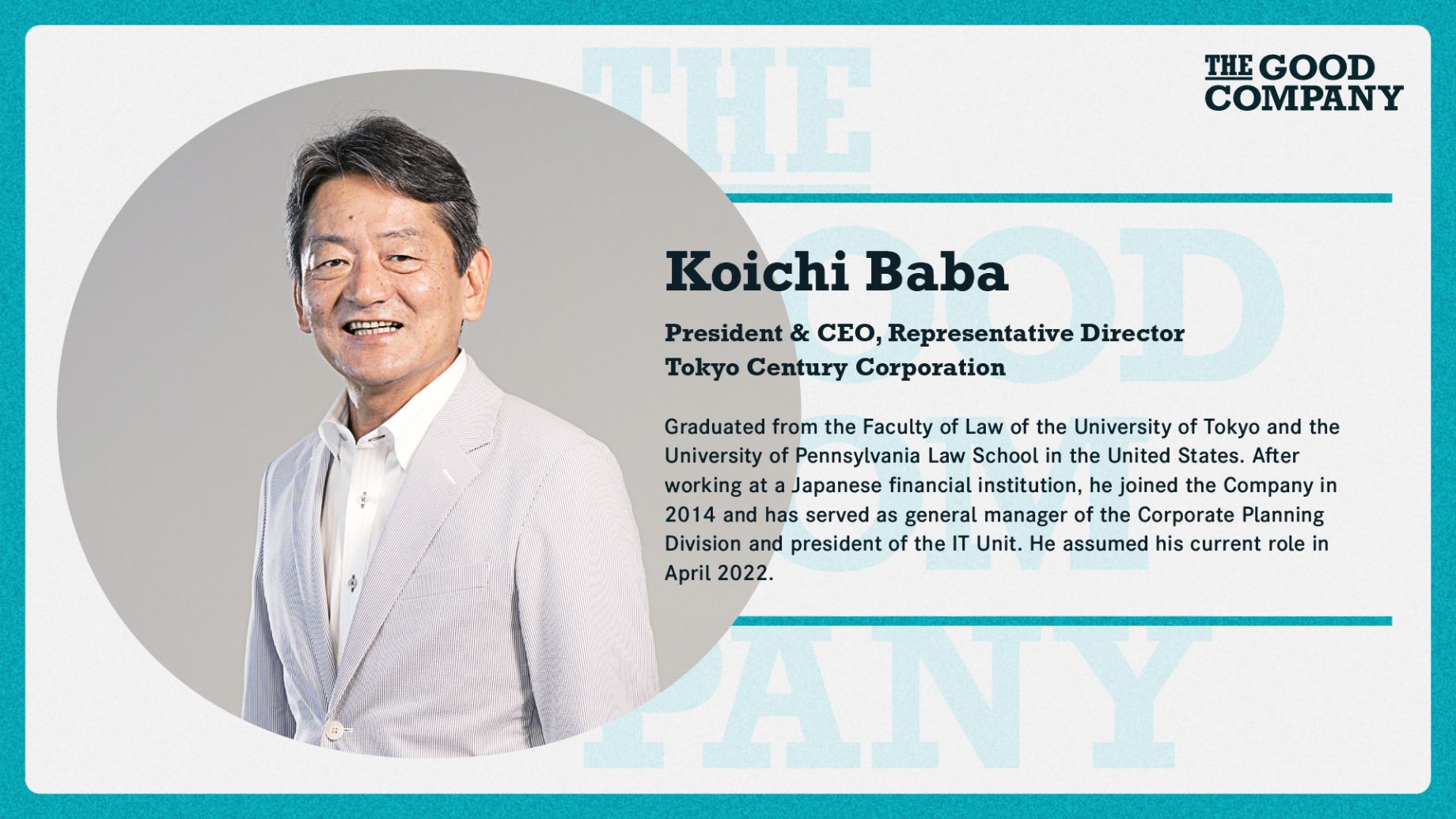
Diverse Perspectives on Well-Being
——First, how did you meet and what were your initial impressions of each other?

Seki
I first met Mr. Baba at a table discussion in a symposium last year. When we met on another occasion, I became aware of the employee message board hanging in his office, which gave me the impression he cares strongly about his employees.
I clearly remember the first time I met Ms. Seki. I was impressed by her sharp, witty comments. I’ve always been inspired by her stories based on her experiences of working in a range of fields across the globe, not just in Japan.
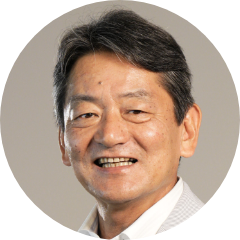
Baba

Seki
I see Mr. Baba values dialogue with his employees and he listens carefully to their voices while managing the company with them. I feel his approach has a lot in common with Ridgelinez’s people-centered approach to change. Ridgelinez is a comprehensive professional firm that places a lot of importance on working with clients in pursuit of their transformation, starting with people at the center of that change. This is based on our understanding that people represent the most important aspect of corporate transformation.
These days, simply responding to change is not enough to achieve sustainable growth. So I always express the importance of working together with our employees to transform ourselves and bring about change.

Baba
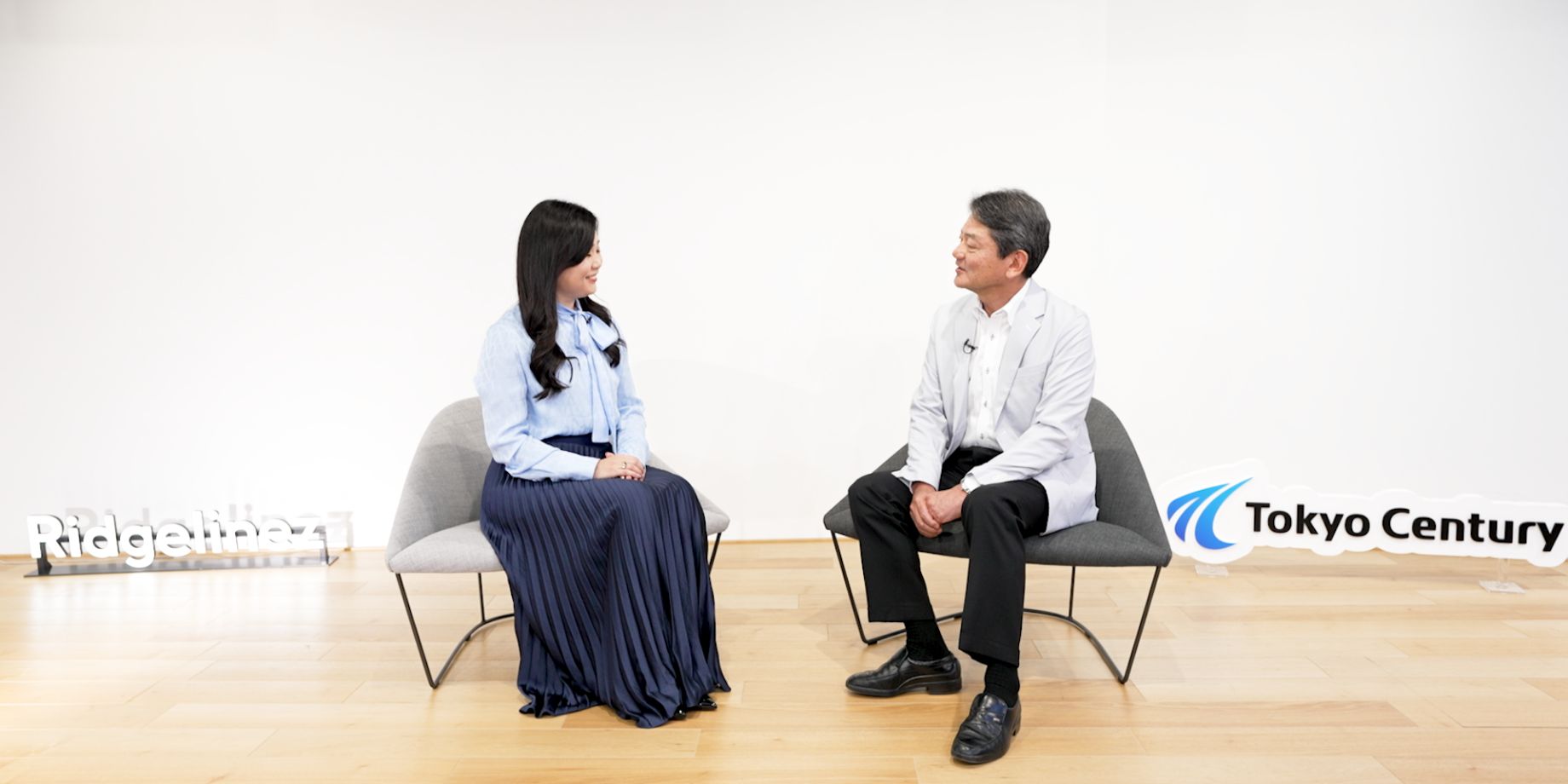
——Could both of you share your concepts of well-being?

Seki
For me, well-being means feeling physically and mentally healthy, which leads to the understanding that being able to work with vitality is at the core of well-being. That’s why I feel employee well-being is an essential element for every company initiative.
The word “well-being” is made up of the words “well” (or “good”) and “being” (or “state”). Every individual has their own view of what leads to well-being. This goes beyond feeling a sense of fulfillment at work, as it includes the employee and that person’s family maintaining the best possible state of health, and also the establishment of human relationships. There is no textbook answer that says doing anything in particular will improve one’s well-being.

Baba

Seki
I agree. People have different views of well-being. Some people experience well-being when they are fully engaged in rewarding work, while others find it through enjoying quality time with their families, achieving a good work-life balance.
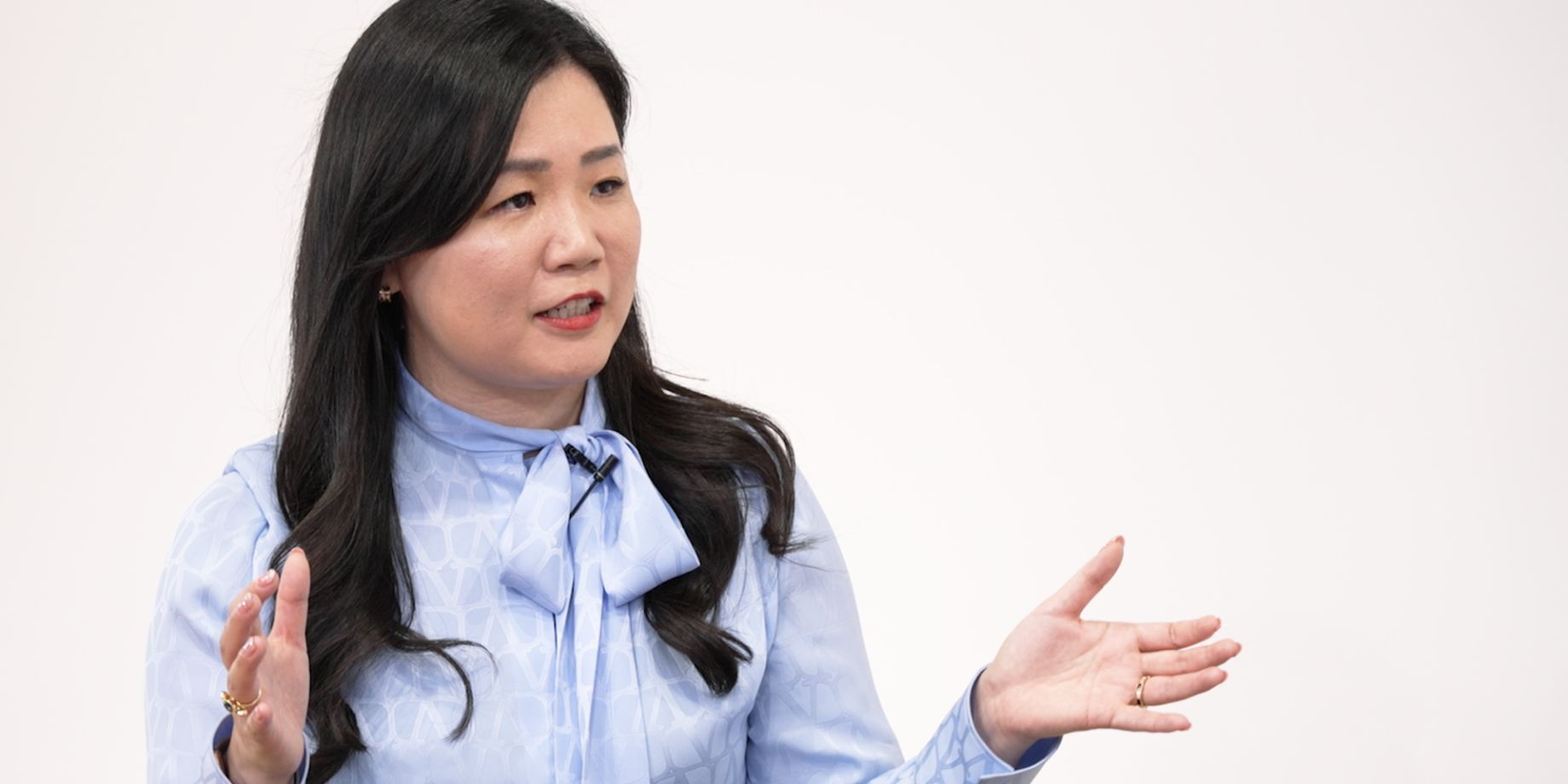
Seki : As we promote D&I, we are reminded of the importance of paying attention to mental and physical health, or well-being.
——Does this mean that well-being can be realized even while exploring what constitutes the state of well-being?
Well-being is very difficult to define, so I think we need to think it through with our employees to agree on a definition that suits our company from the ground up and through our own efforts.

Baba

Seki
I also feel that activating the entire organization requires working with employees to build the organization. I’m a D&I promotion leader, and the mere presence of diverse human resources doesn’t mean that the full benefits of diversity are being realized. So it’s very important to create an environment where everyone feels comfortable speaking up and working together with vigor.
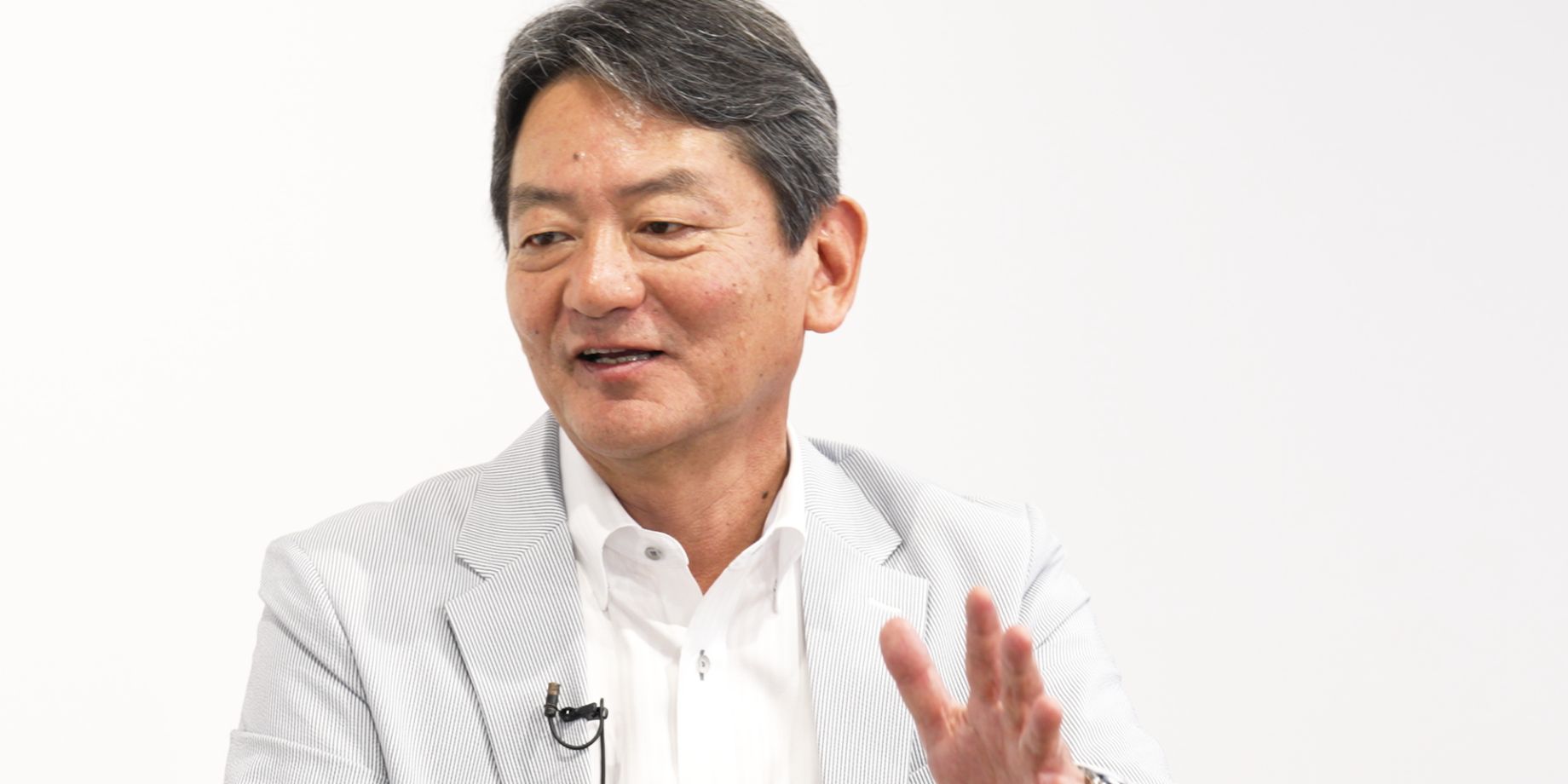
Baba: About 40% of our employees have joined the Company as mid-career hires. I feel that what’s gradually taking root is a culture in which diverse people with different backgrounds can come together to incorporate fresh perspectives for generating new chemical reactions.
Tokyo Century’s First Year of Well-Being
——What are your thoughts about Tokyo Century’s designation of 2023 as the first year of well-being?
The management of human capital has been attracting attention, so I felt the need to incorporate the perspective of well-being into our management practices. Comfort and work-related satisfaction in the workplace are particularly related to happiness. That’s why I declared in my New Year’s message that 2023 would be Tokyo Century’s first year of well-being, expressing my determination to create such an environment.
Actually, I had no clue what makes employees happy, despite so enthusiastically pursuing that goal. However, making this declaration has put pressure on me to secure a firm commitment to employee well-being.

Baba
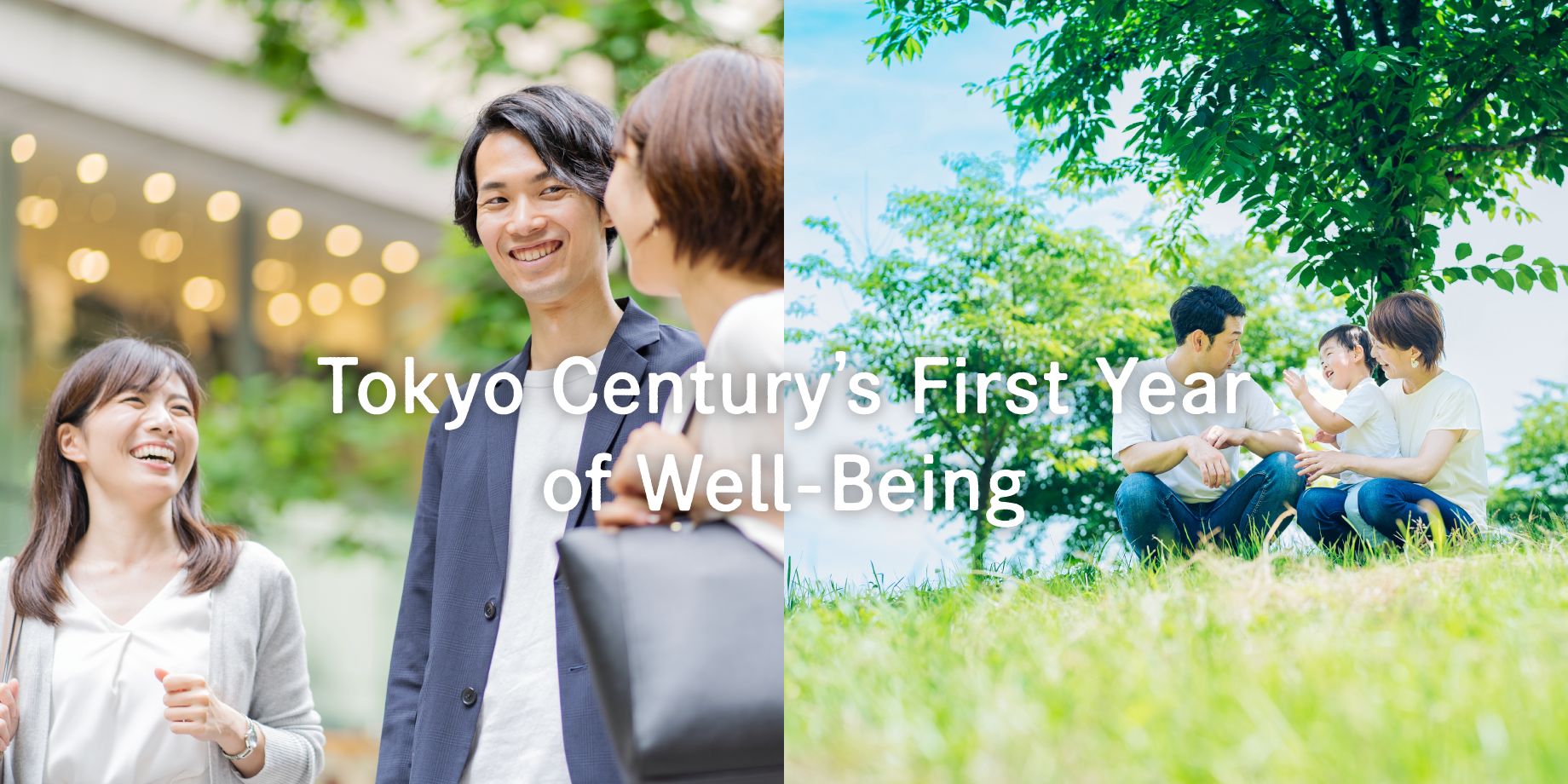
——Just as Mr. Baba has been experiencing this change, I suppose that the employees have started to change too. According to an employee survey, 86% of the respondents answered “Yes” to: “Have you heard about well-being in the workplace?”
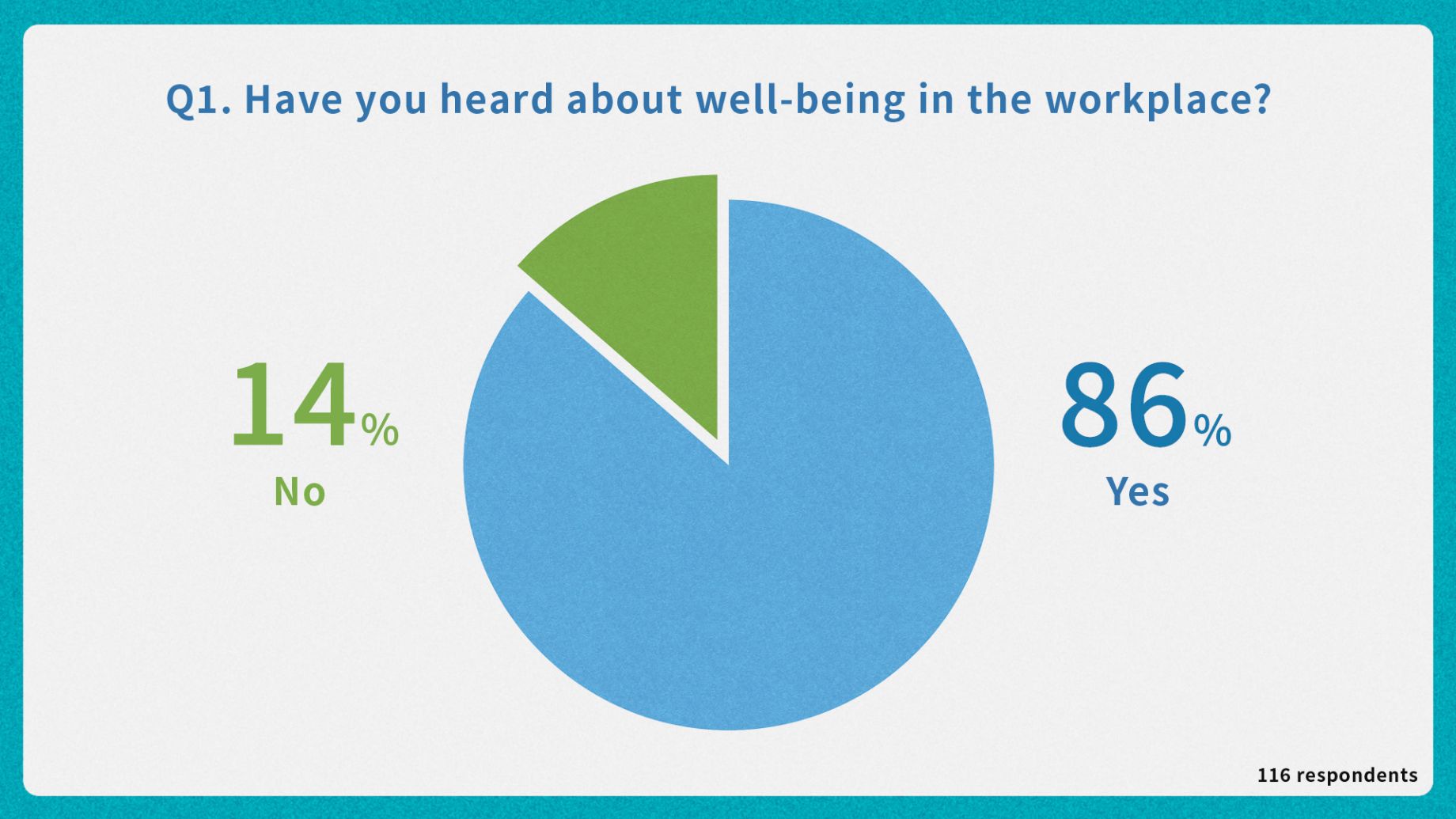
Results of Employee Survey (1) (116 respondents)
Employee recognition of well-being has been growing. Initially, our employees were not so aware of it and didn’t respond very strongly to the initiative. Recently, though, they have begun to realize the initiative could be a pathway that leads to well-being.

Baba
——On the other hand, 56% of the respondents answered “Yes” to the question “Do you have opportunities to genuinely experience well-being in the workplace?” This is lower than in the previous question.
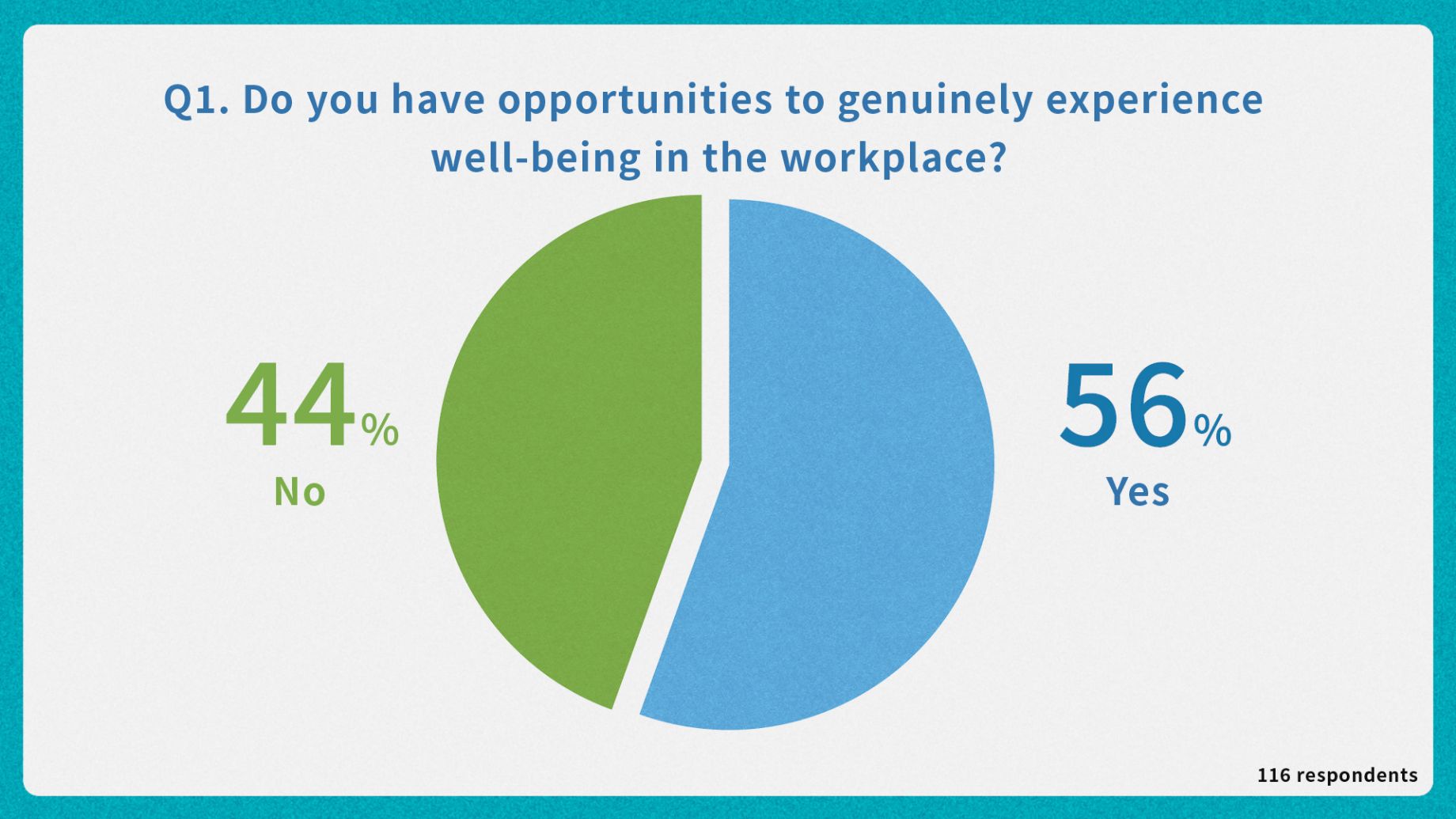
Results of Employee Survey (2) (*116 respondents)

Seki
I think the reason many respondents recognize the concept of well-being, without having the opportunity to actually experience it, is that the concept is relatively new. It’s defined broadly and interpreted differently from one person to the next, so if you’re not regularly thinking about what well-being means to you personally, it may be difficult to clearly answer “Yes” to: “Are you genuinely experiencing well-being?”
Having declared the first year of well-being, we now bear a large responsibility. We must take the survey responses very seriously and offer more opportunities for employees to experience well-being. Taking into consideration the results of a recent employee engagement survey, we’re currently considering ways to promote human resource and organizational transformation (HRX), including gathering more specific opinions from employees.

Baba

Seki
Our company has included an item called “Action Taking” in our employee engagement survey to confirm whether the company has been able to translate employee feedback into action. The key here is that the company accepts the scores and then states what associated actions will be taken. I believe turning employee feedback into action and making sure that employees know about it will lead to higher engagement and well-being.
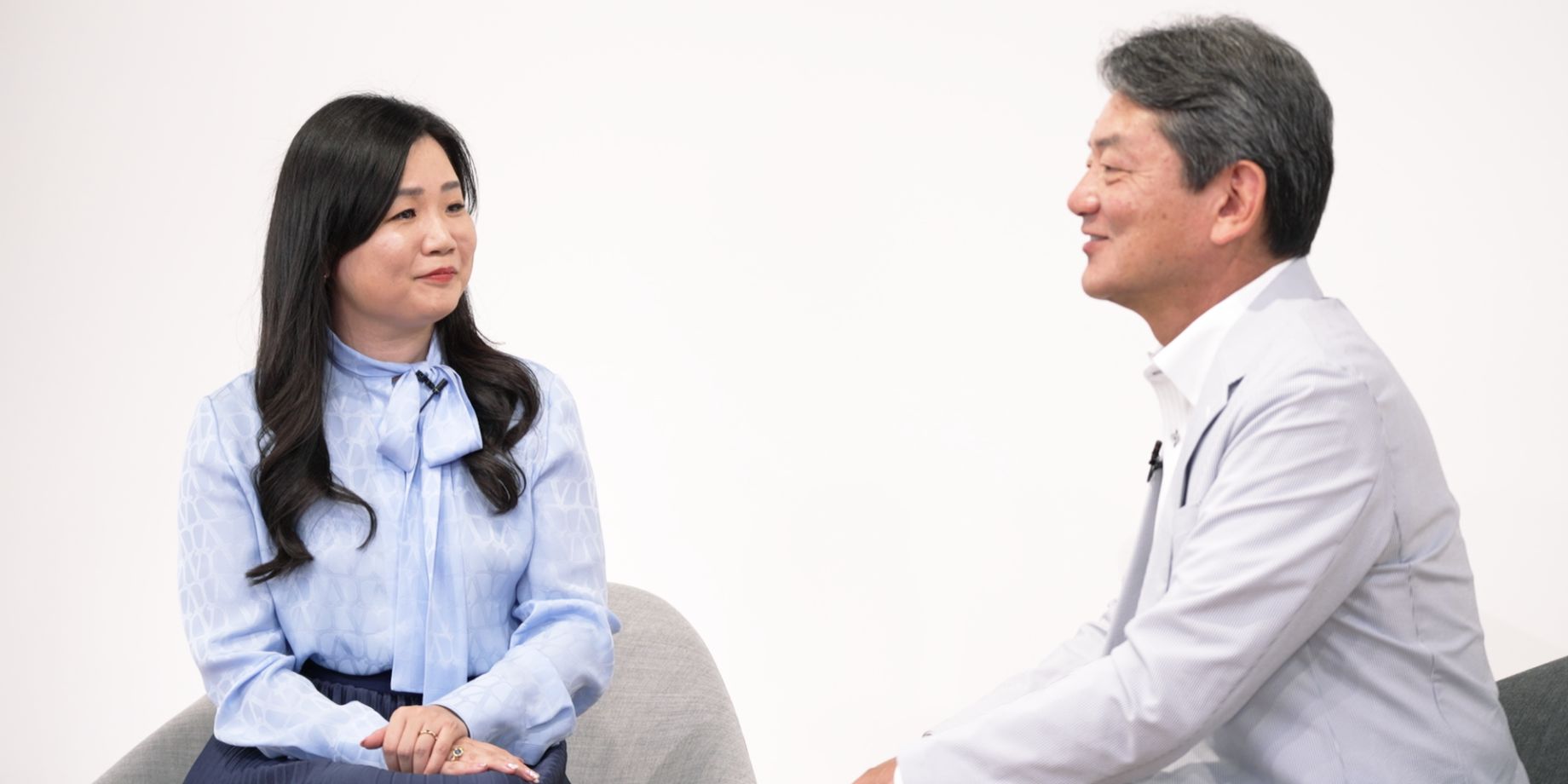
Baba: Despite seeing relatively poor results, I was glad that employees responded honestly and didn’t simply choose the answer they thought the Company wanted to see.
How Companies Can Improve Employee Well-Being
——It appears that employee satisfaction with career development and growth opportunities within a company is also linked to their sense of well-being. In the survey, more than 65% of respondents said they were satisfied. What are your thoughts on this?
I believe a company and its employees stand on an equal footing in terms of choosing or being chosen. These days its seems more people become career-conscious at an earlier stage, and at this company many constantly wonder whether they can achieve the career they’ve envisioned for themselves. So, companies must develop and provide an environment that helps employees engage in career planning with autonomy or independence.

Baba

Seki
In other words, they must establish environments where employees can pursue careers aligned with their personal aspirations, and both management and employees must be committed to career development. The world is rapidly changing, and skill requirements are rapidly evolving too. So I think it’s important for employees to become autonomous or independent, and able to demonstrate their abilities in any environment, rather than seeing that place as something the company defines and gives them.

Comment from an employee in an interview: “I was the first person to take childcare leave, and at the time I was groping my way through things. But everyone helped me and enabled me to be where I am today. I feel that as an employee I should be grateful for this environment.”
——The fostering of a corporate climate and culture seems to be related to the improvement of well-being.

Seki
The feeling of having a place to belong, and being a part of this organization, will also provide physical and mental health benefits, which in turn will improve one’s well-being. So companies and their employees should work together to foster a corporate climate by both disseminating measures and information and increasing opportunities for dialogue. As Tokyo Century promotes HRX, I believe corporate value will be enhanced through management that places its human resources, including employees, at the core of transformation.
A company derives energy from its employees, without which it wouldn’t be able to develop sustainably. I believe that when the corporate purpose and an employee’s purpose are well aligned, then the employee’s well-being is enhanced by a sense of happiness due to being part of the company. In other words, the employee feels the company allows for gaining the experiences of self-realization and success, which will result in their well-being . We will continue our efforts to provide such an environment so that we remain “the company of choice.”

Baba

Yuko Seki
Executive Officer, Partner, and Chief Diversity & Inclusion Officer
Sustainability Transformation Practice Leader
Ridgelinez Limited
For nearly 20 years, she has worked with corporate management teams in the consulting, automotive, and e-commerce industries on management strategy, organizational development, organizational and cultural reform, customer experience (CX), and employee experience (EX). She worked for 15 years at Booz Allen Hamilton’s U.S. headquarters as well as at Nissan Motor. After returning to Japan, she served as an executive officer responsible for corporate planning at a foreign consulting firm and as a member of a confidential project at Amazon before taking on her current position.

Koichi Baba
President & CEO, Representative Director
Tokyo Century Corporation
Graduated from the Faculty of Law of the University of Tokyo and the University of Pennsylvania Law School in the United States. After working at a Japanese financial institution, he joined the Company in 2014 and has served as general manager of the Corporate Planning Division and president of the IT Unit. He assumed his current role in April 2022.
RECOMMEND ARTICLES
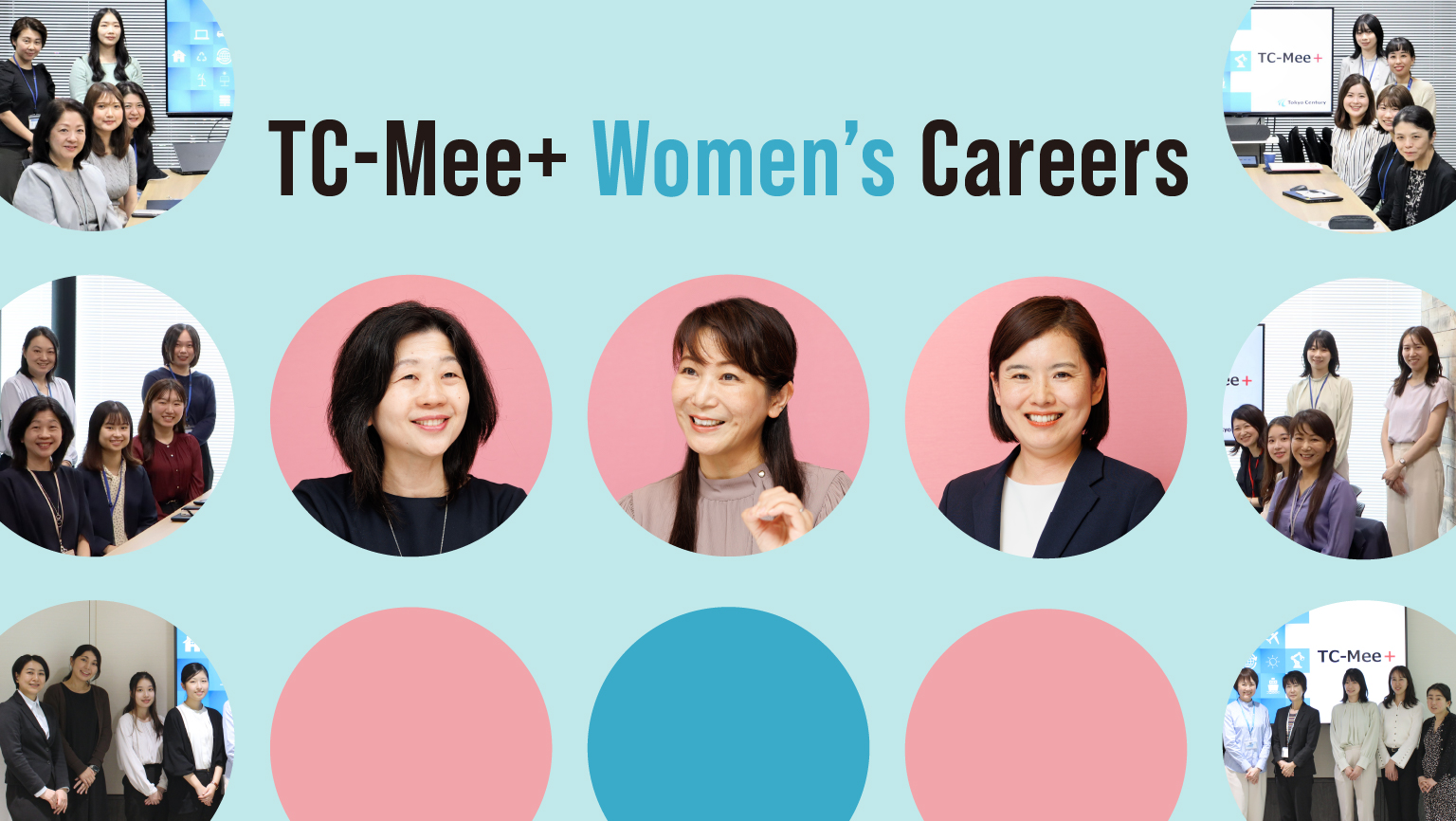
Dec 13, 2024
Since fiscal 2022, T…
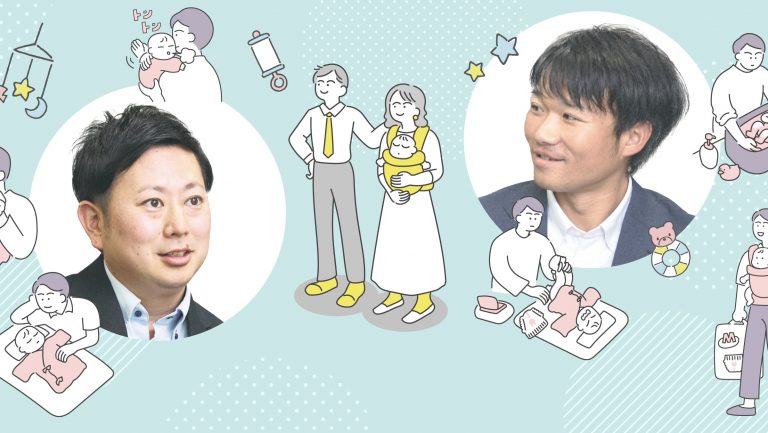
Feb 28, 2024
With the Act on Chil…
